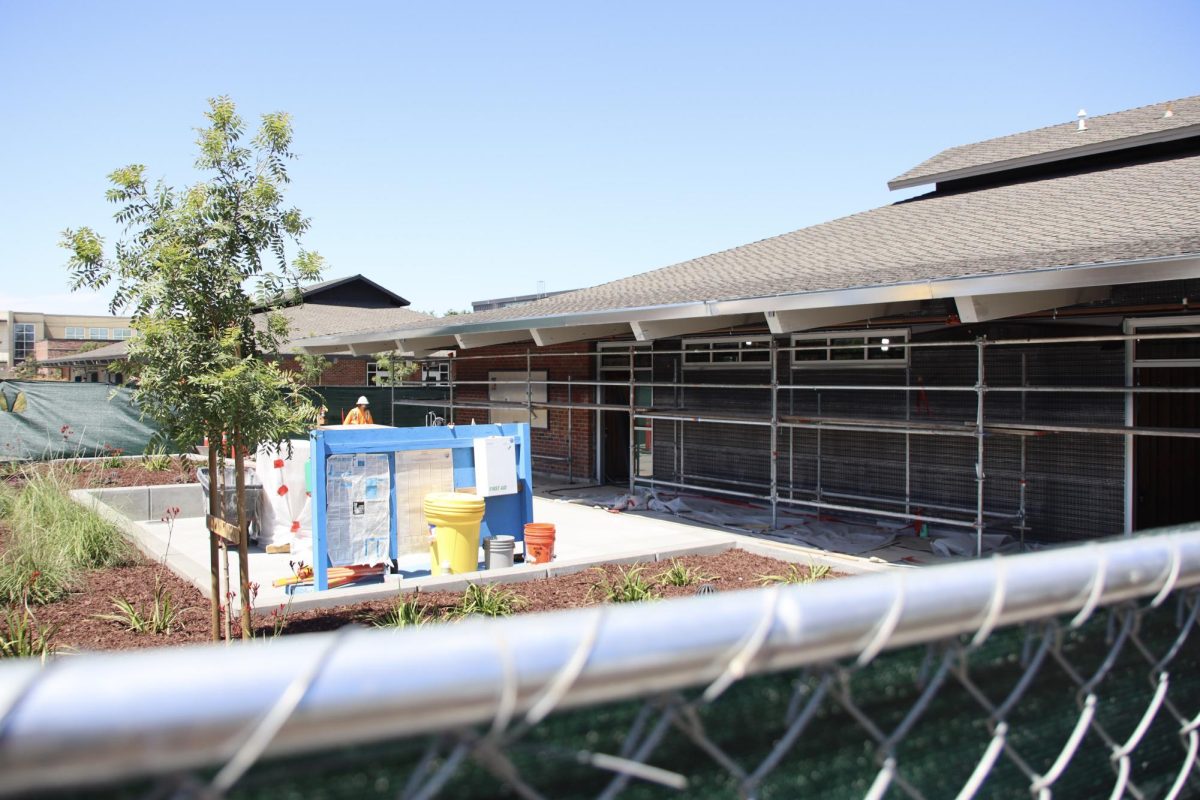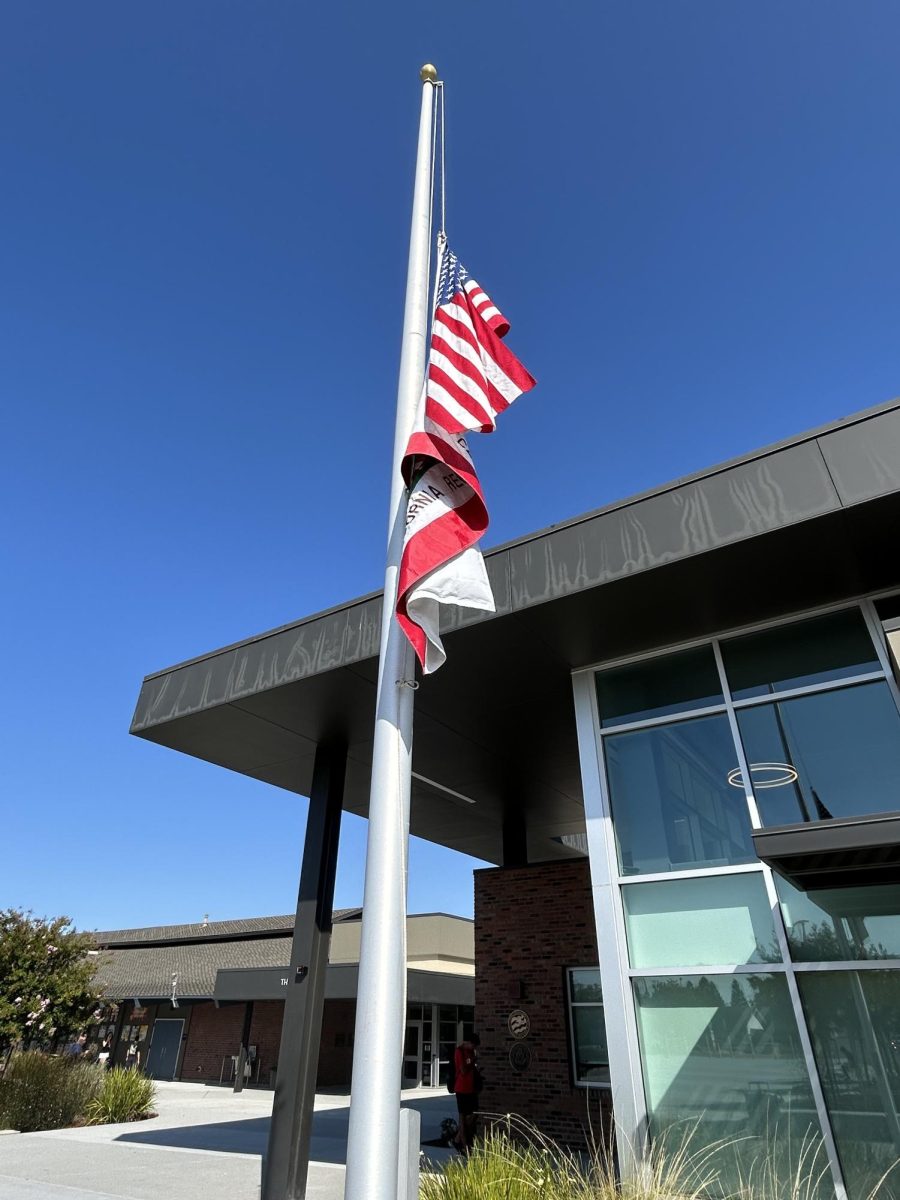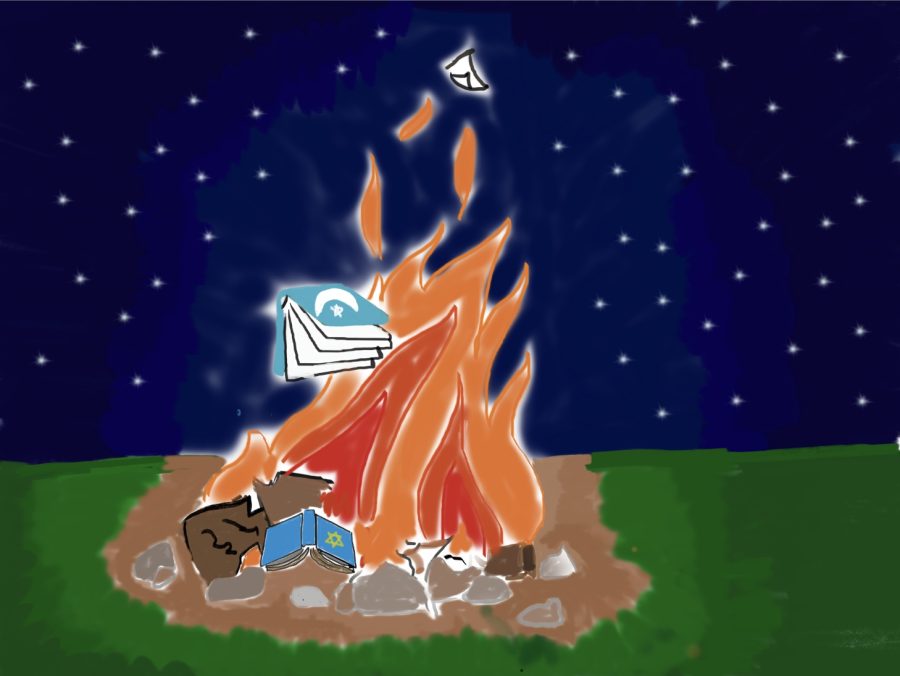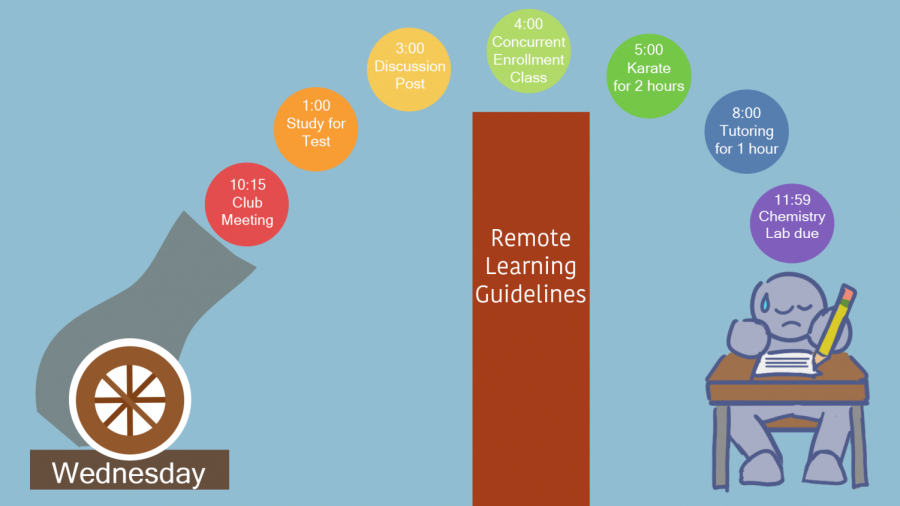From Sep. 12-14, Lynbrook’s flag was flown at half mast following an order by President Donald Trump to honor the memory of Charlie Kirk, a conservative political commentator, after his death.
While sympathy is important in the aftermath of tragedy, it can be exploited to create false narratives. Kirk’s murder was a senseless act of political violence, but it shouldn’t be used to lionize him, when his true legacy is one of division, inflammatory rhetoric and a rejection of democratic values.
In the aftermath of Kirk’s murder, Governor Gavin Newsom posted on Instagram that he “admired” Kirk and that we should “continue his work: engage with each other through spirited discourse,” and New York Times op-ed columnist Ezra Klein wrote that “Charlie Kirk practiced politics in exactly the right way.” Charlie Kirk Remembrance Day passed with a unanimous vote from the Senate, the resolution praising Kirk for “working tirelessly to promote unity.”
These portrayals of Kirk are simply inaccurate. We should confront who he really was: a man who believed that “guns save lives” and that gun deaths were “worth it” to uphold the Second Amendment; who thought the Civil Rights Act, which granted millions of Black Americans the right to vote, was a “mistake”; who praised stoning gay people to death as “God’s perfect law”; who accused Jews of controlling “the colleges, the nonprofits, the movies, Hollywood, all of it”; who responded to the violent 2020 attack on Representative Nancy Pelosi’s husband by saying that “some amazing patriot…should go bail out” the attacker. His words excused violence and spread hate toward millions of Americans. Not acknowledging this risks unintentionally normalizing his extremism under the banner of “respect.”
Kirk’s egregious, inflammatory language was a trademark of his debates on college campuses, where he was well-known for his viral exchanges with students. Looking at Kirk’s career, some have commended his willingness to speak with almost anyone — but this overlooks how his speech was built upon hate and misinformation.
Kirk also made efforts to suppress the free speech of those who disagreed with him. His nonprofit, Turning Point USA, authored Professor Watchlist, a website that lists college professors with left-wing views, flagging them as “anti-American.” Professors on the list have received harassment, doxxings and even death threats.
What’s more concerning than the glorification of Kirk is the assault on the free speech of his critics. Senior MSNBC political analyst Matthew Dowd was fired for suggesting Kirk’s rhetoric may be a reason for the recent rise in political violence, and may have contributed to his death. The Trump Administration pressured ABC News to suspend their 23-year running show “Jimmy Kimmel Live!” after its host accused MAGA-aligned figures of politicizing the tragedy and Trump of fanning the flames of polarization. The show was suspended for one week.
“Memorializing someone for free speech by censoring people and having them lose their job is the most backward thing I’ve ever heard in my life,” said Nolan Higdon, University of California, Santa Cruz political and media analyst. “That’s the exact type of abuse of power that is used to silence debates.”
Many Lynbrook students posted about Kirk’s death over social media, expressing differing views on the situation.
While junior Emma Ha said she also feels sympathy for Kirk and his family, she said she believes the killing was a direct consequence of the environment Kirk created with his rhetoric — something people shouldn’t gloss over.
“I can understand how people who felt personally connected to Kirk feel such a loss,” Ha said. “But if you want to correctly acknowledge someone’s history, reputation and life, you have to describe their true ideology.”
Sophomore Wendi Sun, although initially feeling indifferent toward Kirk’s death, said she soon became worried about the broader effects it could have on political violence. Sun said she was also concerned about the infringement upon free speech, referencing the suspension of Jimmy Kimmel’s show.
“It feels like this is just another step toward his martyrdom,” Sun said. “Other influencers and historical figures have died, but they never got that much remembrance. This is just another step toward silencing others and supporting this one person, which shouldn’t be the case.”
Some students have celebrated Kirk’s death on social media, or made the claim that it was justified because of his rhetoric. It should be obvious that violence is always wrong, and a threat to this country’s democratic principles. Condoning it only fosters an unsafe political climate for our generation.
For Class of 2025 alumnus Taek Kim, the ordeal is an opportunity for people to put Kirk’s political views aside and focus on the dangers of violence. Kim posted an Instagram Story emphasizing the importance of discourse in times of political polarization.
“I’ve decided to separate political views from the actual person,” Kim said. “As someone who tries to be empathetic, I think it’s important to treat Charlie Kirk as a human being.”
Ten days after Kirk’s death, over 200,000 people turned out for his memorial in an overfilled stadium in Glendale, Arizona. At the event, Trump hailed Kirk as a “great American hero” and a “martyr for American freedom.” These words set a dangerous precedent for how society views history: that fame and recognition, rather than integrity, are what determine how someone is remembered. It reflects a broader tendency to sanitize controversial figures when they become victims of violence, rather than examine their true character.
“What’s concerning me is that if you disagreed with him, at least you could have a conversation with him — his followers could hear what he said and understand why he was wrong,” social studies teacher Nhat Nguyen said. “But the second he was assassinated, I knew we lost that conversation. He’d become a martyr and thousands of people are gonna rally behind him as a symbol. That’s not a good thing.”
The horror of Kirk’s death should not be an excuse to ignore his harmful rhetoric and actions. Remembering him for his true self in no way downplays the severity of his murder. Grief and accountability must coexist in a healthy political culture.































































